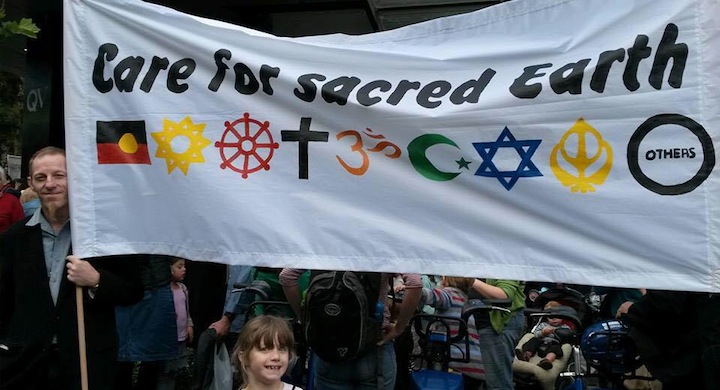With the ink barely dry on the page, the analysis of the COP21 climate talks begins, and so too hopefully the hard work of getting it done. Regardless of the outcome, I think there are two extremes to avoid.
The first is that of overweening optimism. In our Babel like world, wisdom, right thinking and cooperation are not to be taken for granted. Further, the message across the ages from Paul in Romans 8 is that any human pronouncement of a new age of environmental prosperity needs to be taken with a grain of salt. The other extreme is that of total cynicism. As was pointed out to me several years ago, Job chapter 1 points out that cynicism is diabolical.
That said then, how should we react to this new “deal”? The first thing to note is that the 1.5 C target is a moral one. With less than 1 C we’ve already seen impacts around the globe, but much of the brunt of this has been borne by Pacific Island nations. Islands like Tuvalu, Kiribati and the Carteret Islands are at the front line of sea level rise caused by warming waters and melting ice. Many of these nations are largely Christian, and the James principle should operate here – prayer without (climate related) works is dead. A target of 1.5 C will make a great difference, but of course with climate inertia, we can’t limit our thinking to 2100 alone. Should the Lord tarry, we need to look to a long term future where human actions don’t adversely affect future generations.
The agreement does also mention the need to acknowledge the rights of indigenous people. This is a pressing concern for many reasons. In Australia, indigenous communities have suffered health issues due to uranium mining. Recent plans to close remote communities have been linked by some to a renewed interest in uranium mining (see here and here). Indigenous communities in Ecuador continue to fight big oil. The same effect can be had when the opposite turn is taken. Will there be calls to remove indigenous peoples from forests that are managed as carbon offsets, just as they were removed from Yellowstone National Park?
This concerns Christians because we’ve been so often wedded to Constantine that little has differentiated church and state in colonialism. In a paper in the March 12 issue of Nature, Simon Lewis and Mark Maslin examined various starting dates of the Anthropocene, the age of human domination of the globe. One suggested date is associated with a drop in carbon dioxide levels in 1610, associated with what they euphemistically call the “New-Old World Collision.” Diseases, war, enslavement and famine saw over 50 million die in the Americas, with the collapse of farming and recovery of forests.
Changes in climate are tied to colonialism and we cannot afford to repeat the mistakes of the past. This is why COP21 makes clear there are “differentiated responsibilities and respective capabilities.”
So, the world is looking at an ambitious target, and as Bill McKibben says, the starter’s pistol has fired and it is time to start running. We are still running the other way, towards almost 3 C by end of century. Now the real work begins, of cutting the Gordian knot of big energy and government, of exposing the lies of big energy like Exxon, of eating more virtuously, and so on. There is still a big role for religion, a big role for the church. It’s clear Pope Francis’ encyclical has had an impact. As I’ve argued before, we have a mission not just to share the gospel in words, but to incarnate it in our caring for creation.
The church needs to take the lead. While we are ruled by no King David, we can still play Samuel to our governments precisely because we believe Jesus is King, and the land will once more be filled with milk and honey, and justice will roll like a river. Our key word must be hope.

